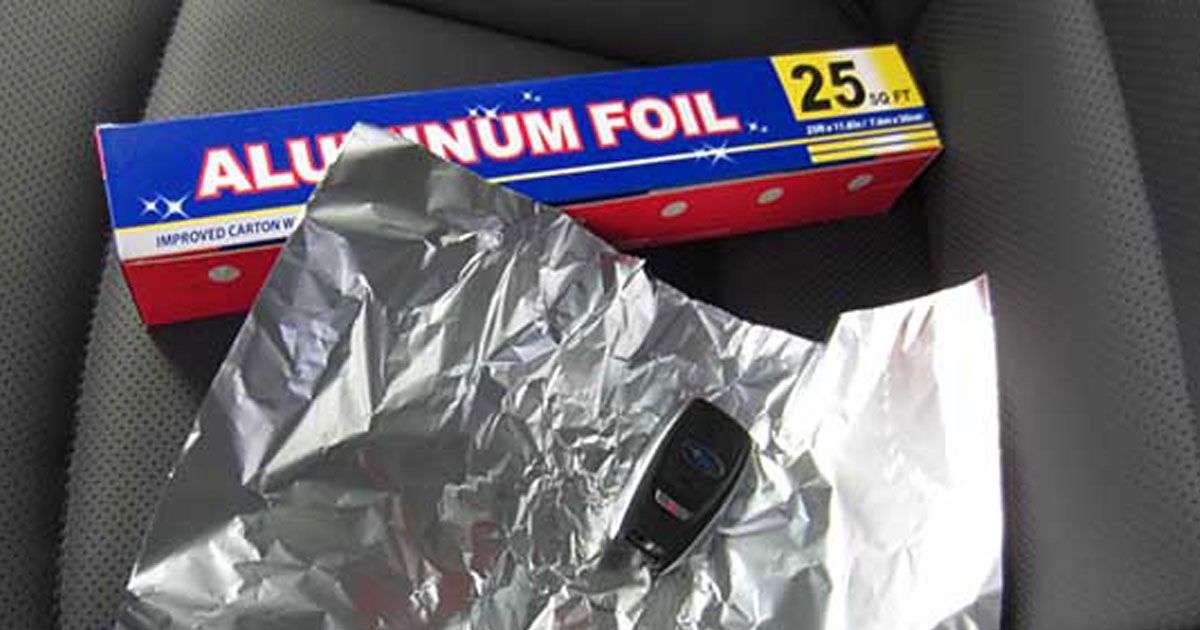Our cars are always “listening.” No, not for our voice but for an electronic signal, like the coded “unlock” signal from your electronic key fob, or the signal that tells newer cars to unlock once you get near.
“Listening”.
However, your car isn’t the only one listening. You see, the key fob’s signal is easy for criminals to intercept. And once they have that, they can open your car without settle off an alarm. And If you have a truely keyless car the theives might even be able to drive away.
As you’ve probably noticed, you can’t just open your car with any old radio signal. You need your specific key fob to do the job, and there’s a reason.
A key fob uses a computer chip to create a unique code that it sends to your car’s security system. The car also has a chip using the same algorithm to generate codes. If the codes match up, then the car opens. There’s a bit more to it than that, but that’s the basic explanation.
Since each key fob/car security pair is unique, and each one can create billions of codes, hackers don’t stand a chance.”1
At least that’s what they thought. However, researchers from Radboud University in the Netherlands and the University of Birmingham found that “by intercepting the wireless signal just twice, they could narrow down the possible combinations from billions to just 200,000.”2 And once that happens, “a computer can figure out the code in just half an hour and unlock the car.”3
But, that would take a very skilled car thief or hacker, something hackers of always-on key fobs don’t need to be:
“…always-on key fobs present a serious weakness in your car’s security. As long as your keys are in range, anyone can open the car and the system will think it’s you. That’s why newer car models won’t unlock until the key fob is within a foot. However, criminals can get relatively cheap relay boxes that capture key fob signals up to 300 feet away, and then transmit them to your car.”4
All a thief has to do is stand near your car with a relay box while their friend scans your house with another one. Once the signal is picked up, it’s transmitted to the box that’s closer to your car and voila- it opens. Imagine this…your keys are in your house and a criminal walks up to your car and opens it.
And before you think this is just fear mongering or science fiction it’s not. This is happening.
Thankfully, there are a couple things you can do to prevent hackers from stealing your signal:5
- buy a signal-blocking pouch that can hold your keys, like a shielded RFID blocking pouch
- stick your key fob into the refrigerator or freezer; the multiple layers of metal block your key fob’s signal (check with the fob’s manufacturer to make sure freezing it won’t do permaent damage)
- stick your key fob in the microwave
- wrap it in aluminum foil
That’s right! Since the signal is blocked by metal, an inexpensive way to protect your signal from hackers is to wrap it up in aluminum foil. While yes it’s an easy solution, you have to make sure you do it correcty. Or, if you’re into DIY stuff, you can make a “foil-lined box” to put your keys in.
How should you wrap your fob? Check out the video below!
Source:












